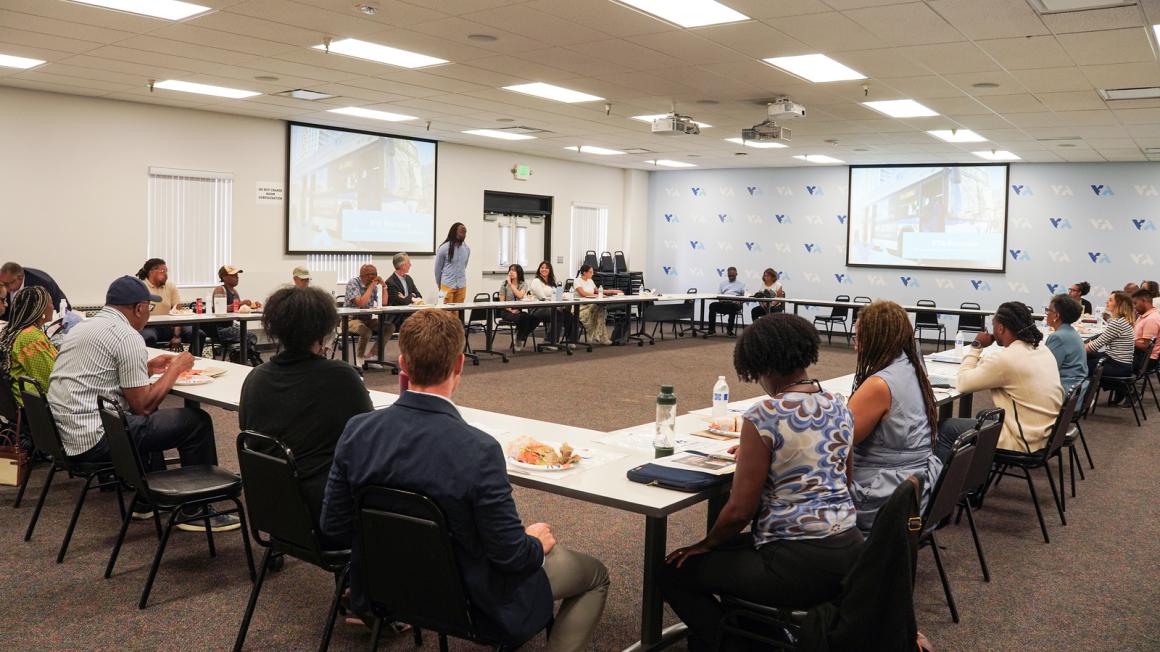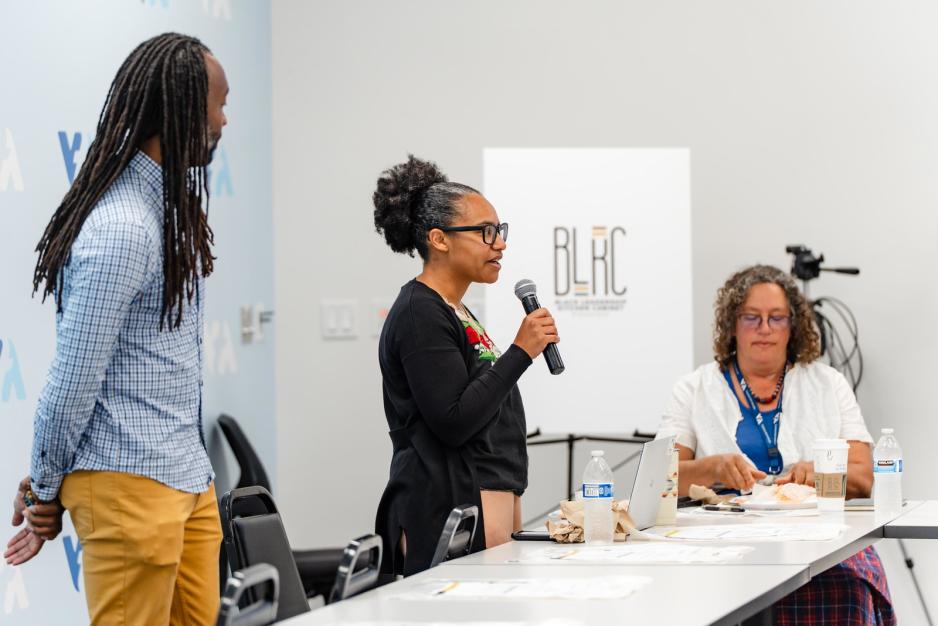Strengthening ties with the Black community in Santa Clara County and ensuring underserved communities have a voice in how the agency carries out its mission, were the goals of a recent gathering at VTA with the Black Leadership Kitchen Cabinet of Silicon Valley (BLKC.)
VTA’s Accessibility and Civil Rights department has a longstanding relationship with the community-based organization. While VTA representatives regularly attend BLKC meetings, the gathering was held at VTA for the first time in early July. BLKC consists of volunteers from various organizations who gather support and foster initiatives that can benefit the African American or African Ancestry community across Santa Clara County. They work collaboratively with local and county governments, school districts, and local businesses.
VTA is committed to open dialogue with the group of local leaders to learn about concerns and priorities and gather input regarding VTA’s infrastructure projects and transit services.
The transit agency intentionally seeks out the voices of historically underserved communities to ensure the design and delivery of services, and infrastructure projects are properly serving the needs of those communities. Among the topics covered at the recent meeting:
- Title VI mandate - Title VI of the Civil Rights Act of 1964 prohibits discrimination based on race, color, and national origin in VTA’s programs and activities receiving federal funding.
- Equity - To ensure compliance with Title VI, the Federal Transit Administration (FTA) requires grant recipients (such as VTA) to actively engage the public in transportation planning and decision-making processes. This engagement is especially important for minority and limited English proficiency (LEP) populations who may be disproportionately affected by transportation projects.
- Brown Act Ensures Transparency and Participation - The Brown Act, California's open meeting law, guarantees the public's right to attend and participate in meetings of local legislative bodies. By adhering to the Brown Act, local agencies ensure that public meetings are open, noticed in advance, and allow for public comment.
- Preventing Discrimination - By monitoring how agencies implement the Brown Act's public participation provisions, the FTA can assess whether underserved communities are receiving meaningful opportunities to participate and if their input is being considered. This helps prevent discriminatory outcomes in transportation planning and project development.
Co-chair Jahmal Williams welcomed over 40 attendees as well as the following VTA presenters:
Aston Greene, Chief System Safety/Security Officer – Welcoming the BLKC and sharing his personal/professional background. Aston is now a member and actively involved with the BLKC.
Beverly Greene, Chief Government Affairs Officer – Explained VTA’s services and programs, mission and values. Highlighted diversity of VTA’s workforce.
Brent Pearse, Planning and Engagement Mngr., BSVII – Explained opportunities generated through VTA’s monumental project, BART Silicon Valley Phase II Extension Project, as well as current progress and opportunities for community leaders to sit at the table and be actively involved in the progress of the project.
Remi Awosanya, Contracts Compliance Mngr. – Showed how VTA’s Office of Office of Business Development Program (OBDP) supports Disadvantaged Business Enterprises (DBE) as well as Small Business Enterprises (SBE) by providing entrepreneurs with opportunities to participate in the performance of VTA contracts and subcontracts financed with federal funds (DBE) as well as in state/locally funded projects (SBE).
Jasmin Fender, Sr Analyst, ACR Investigations – Trained the group on their rights as members of the public under Title VI of the Civil Rights Act and highlighted VTA’s commitment as equal opportunity employer to provide equal opportunities in employment regardless of age, mental or physical disability, race/color, religion, sex, or veteran status, etc.
See additional photos from the VTA meeting here.

